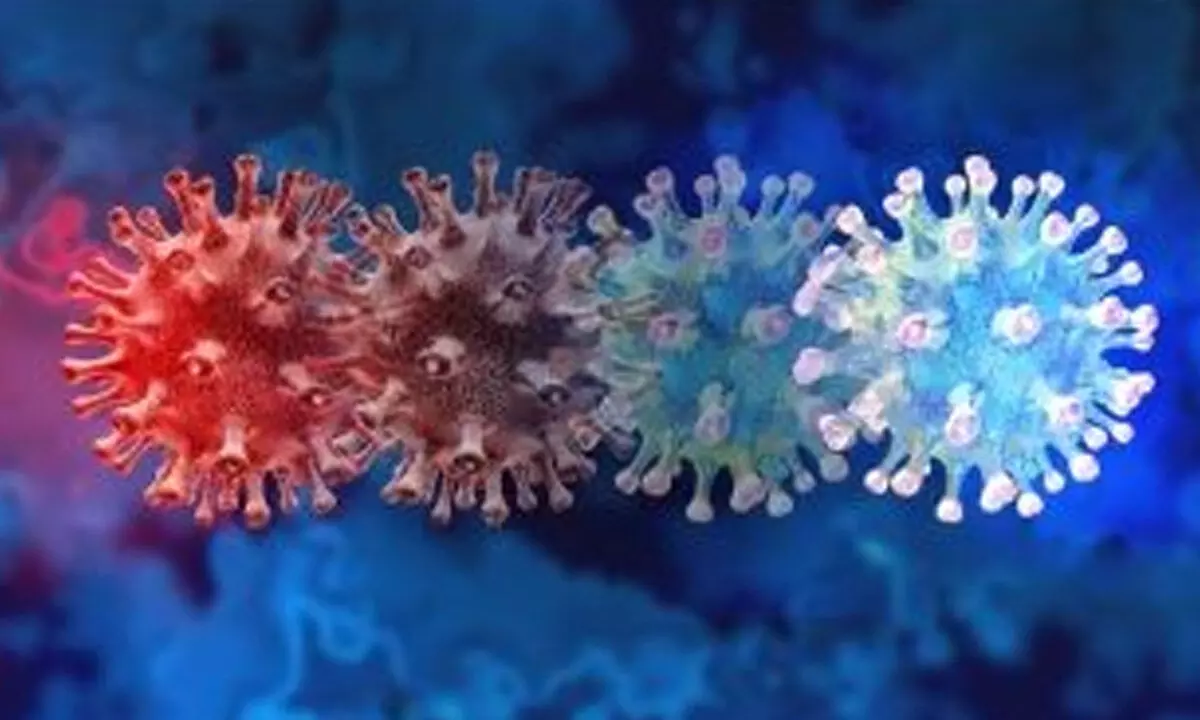Live
- Tirupati: Strictly monitor sales, illegal storage of liquor says Collector Pravin Kumar
- Transforming corporate events: A comprehensive guide to sustainability
- Kodi kathi case accused Srinu joins TDP, thanks all parties for his release
- CM to address public meeting in Kandukur today
- India needs to simultaneously grow hydrogen market and solar power
- Dissecting India’s employment scenario brings forth startling revelations
- Yerragondapalem: YSRCP manifesto has upset people, says Erixion Babu
- Hindi’s powerful voice falls silent
- Narasaraopet: ‘House sites will be sanctioned for pastors’
- I understand struggles faced by people: Waliullah
Just In
New blood test to detect 18 diseases in kids


An international team, led by British researchers, has developed a simple blood test which may be able to rapidly diagnose, detect and distinguish between 18 infectious or inflammatory diseases -- including group B Streptococcus (GBS), respiratory syncytial virus (RSV), and tuberculosis.
London: An international team, led by British researchers, has developed a simple blood test which may be able to rapidly diagnose, detect and distinguish between 18 infectious or inflammatory diseases -- including group B Streptococcus (GBS), respiratory syncytial virus (RSV), and tuberculosis.
Using a single sample of blood, the test could enable clinicians to diagnose the cause of fever based on the distinctive pattern of genes being "switched on or off" by the body in response to specific illnesses.
While current tests for some of the conditions can take several hours, days or even weeks, a test-based on this approach would be capable of providing a result in under 60 minutes.
Researchers from the Imperial College London explained that a diagnostic test based on patients' gene expression could drastically improve the diagnosis of childhood diseases, reduce delayed and missed diagnoses, and have a significant impact on health care, especially in developing regions.
"Despite huge strides forward in medical technology, when a child is brought into hospital with a fever, our initial approach is to treat based on the doctors' 'impression' of the likely causes of the child's illness," said Professor Michael Levin, from the Imperial’s Department of Infectious Disease. "As clinicians, we need to make rapid decisions on treatment, often just based on the child's symptoms, information from the parents, and our medical training and experience," he added, "but we may not know whether a fever is bacterial, viral, or something else until hours or days after a child has been admitted, when their test results come back."
"Such delays can stop patients getting the right treatment early on, so there is a clear and urgent need to improve diagnostics. Using this new approach, once it's translated to near point of care devices, could be transformative for health care." In the study, researchers explored an approach focused on detecting the pattern of a patient's gene expression in blood that occurs in response to specific infections and inflammatory conditions.
Using data from thousands of patients (including more than 1,000 children with 18 infectious or inflammatory diseases) the team was first able to identify which key genes were switched "on" or "off" in response to a range of illnesses -- providing a molecular signature of disease.
Machine learning was then applied to identify which patterns of gene expression corresponded to the specific disease areas and pathogens -- focusing in on a panel of 161 genes for 18 conditions.
This panel was further validated in a cohort of 411 paediatric patients admitted to hospital with sepsis or severe infections (representing 13 of the 18 diseases), where gene expression was captured from blood analysis, and where diagnoses were made using current gold standard clinical methods.

© 2024 Hyderabad Media House Limited/The Hans India. All rights reserved. Powered by hocalwire.com






